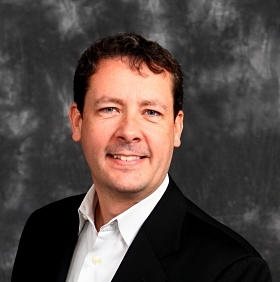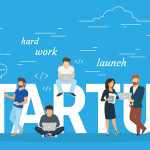In pursuit of the American Dream, Kevin Kruse started his first company when he was just 22 years old. But after discovering the power of Wholehearted Leadership and Employee Engagement Kevin went on to build and sell several, multimillion dollar technology companies, winning both Inc 500 and Best Place to Work awards along the way. Kevin is also the author of several books including the NY Times bestseller, We: How to Increase Performance and Profits Through Full Engagement, which was named one of the top leadership books in 2011 by 800-CEO-Read. He is aForbes Leadership columnist and was named to the Top 100 Business Thought Leaders list by Trust Across America.
His book, Employee Engagement 2.0, provides a detailed action plan that turns “task-managers” into “people-leaders” and Employee Engagement for Everyone guides individuals to greater happiness at work.
He spoke to Wenger & Watson Inc on a lot of aspects, we are privileged to host his interview!
Q: The 1st Entrepreneurial venture always holds a special place for an individual, could you share with us your experience & learnings of your 1st venture?
A: I started my first company when I was 22 years old and just out of college. I didn’t have any money so I just lived off of my credit cards. I couldn’t afford both an apartment and an office, so I rented a tiny one room office from a large accounting firm. And I lived there in that room without them knowing about it. I would work until about midnight and then go to sleep under my desk and wake up at about 5 to leave before anyone else came into the office to discover that I’ve been there the whole night. I took my showers at the local health club and then came back into the office as if I was just arriving to start my day. I did this everyday for a year until I had maxed out my credit cards and had completely failed to establish any kind of successful business. I decided to quit, get a job and get an apartment, but I always knew that once I paid down my credit card debt I would try again.
Q: In all these years, can you share with us, one of the toughest situations you have had to face at your workplace?
A: Over the last 20 years I’ve started several companies and had some great times and tough times. I’ve had to shut companies down and I’ve lost lots of money. But the toughest situation is always whenever you have to fire someone or do a round of layoffs. In either case it’s a failure of management. It’s my failure. I either hired the wrong person, or didn’t coach them to success, or I grew too fast. Either way I don’t really ever think it’s their fault therefore it is emotionally gut-wrenching to have to let them go.
Q: What has been your biggest accomplishment so far?
A: I don’t really feel like I have “accomplishments.” Professionally, I’m glad some businesses have thrived and made an impact and generated new jobs. I’m happy that I’ve been able to write several books that have been very well received and have also impacted people’s lives. I guess my biggest accomplishment so far has been raising three great kids, into their teenage years. They remain my first priority.
Q: Startups are changing the business models in India & the world, any plans of investing in India?
A: Most investors, myself included focus our energy on the people behind the startup, the founders. Hence, we use our networks, to understand the founders better and only after multiple meetings with them, we invest in their business. This approach is abit simpler to encounter people in our own city or country. However, as mentioned before, it has nothing to do with the country itself and more just the odds of finding the right people.
Q: If you had one piece of advice to someone just starting out, what would it be?
A: It’s hard to try to think of just one piece of advice. Entrepreneurship is hard and failure is much more common than success. But my advice is to just view failure as feedback. You either win, or you learn. There are lots of reasons why a company or your great idea might fail. Everything might be perfect but you just might be too early for the market. You might have massive sales, but not the cash to fulfill an order. There are just so many variables. You have to keep at it until everything lines up just right.
Q: Finally, Your views on the traits that a new age recruiter should have?
A: One of my early companies was involved with one of the first applicant tracking systems over 20 years ago, so I’ve seen the impact that the Internet has had on the recruiting industry. From Monster.com to LinkedIn and dozens and dozens of other technology solutions, the Interent and now big data completely disrupted and will continue to disrupt the recruiting industry. So on a fundamental level, New Age recruiters need to be masters of digital technology. But big data is great at finding active candidates, it’s still not so great at finding passive candidates. Recruiters still must master the fundamentals of networking, relationship building and persuasion. The best talent is already happy and busy in a successful company. How can you find them and convince them to look at a new opportunity?







1 comment
Love to see a list of all these companies that Kevin started. I have 28 years IT and would like to compare notes.